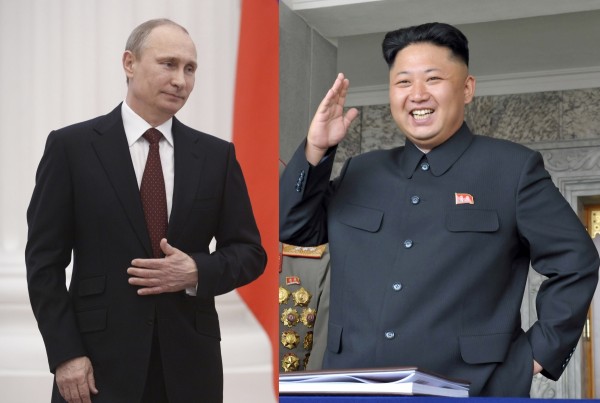 Russian President Vladimir Putin has condemned North Korea’s latest missile launch as “dangerous” but warned against “intimidating” Pyongyang.
Russian President Vladimir Putin has condemned North Korea’s latest missile launch as “dangerous” but warned against “intimidating” Pyongyang.
Speaking in China, Putin called for a peaceful solution to the ongoing tensions on the Korean peninsula, Russia’s Sputnik news agency reported.
“I would like to confirm that we are categorically against the expansion of the club of nuclear states, including through the Korean Peninsula,” Putin told reporters. “We are against it and consider it counterproductive, damaging, dangerous,” he said.
But in comments that appeared aimed at the US, he said that “intimidating (North Korea) is unacceptable.”
For its part, North Korea said the missile test was in response to the nuclear dangers and threats posed by the US and its followers.
“We will conduct ICBM tests anytime and anywhere in accordance with the decisions made by our central leadership,” North Korea’s ambassador to China Ji Jae Ryong said at an impromptu press conference at the country’s embassy in Beijing Monday.
US territory in reach?
North Korea tested a Hwasong-12 missile Sunday which reached an altitude of 2,111.5 kilometers (1,312 miles) and flew 787 kilometers (489 miles), according to state news agency KCNA.
Analysts estimated its ranged as 4,500 kilometers which would put the US territory of Guam within its reach.
A small island in the Pacific, Guam is home to Andersen Air Force Base, through which the US Air Force rotates heavy bombers including B-1s, B-2s and B-52s.
KCNA said the test showed North Korea “has all powerful means for retaliatory strike” should Washington take any military action to stop its nuclear weapons program.
Putin made the comments on the sidelines of the One Belt One Road summit in Beijing, a meeting of 29 heads of state convened by Chinese President Xi Jinping to push his vision for China’s global expansion.
The Russian president called on all parties to “find peaceful solutions.”
Putin’s partial defense of North Korea came after White House press secretary Sean Spicer suggested that the missile test may provoke a more forceful response from the Kremlin.
In a White House statement released Sunday, Spicer said: “With the missile impacting so close to Russian soil — in fact, closer to Russia than to Japan — the President cannot imagine that Russia is pleased.”
The US and Russia also offered differing estimates for where the missile splashed down. The US said it terminated flight just 96 kilometers (60 miles) from the Russian port city of Vladivostock, whereas the Russian Defense Ministry said it landed 500 kilometers (311 miles) from its Pacific coast line.
Russia’s relations with North Korea
While Russia and North Korea don’t have strong trade ties, they are building on their economic relationship. New ferry services are running between the countries and Russia has given permission for some 50,000 North Koreans to carry out manual work on projects in Russia.
Russia is one of the few countries that has diplomatic relations with North Korea. Kim Jong Un’s father, Kim Jong Il, went to Moscow on a state visit during his rule in 2011, and Putin visited Pyongyang in 2000.
“While Russia is concerned about North Korea and its missiles, it also sees North Korea as an opportunity to gain leverage with the West, the US in particular,” said Matthew Chance, CNN’s Moscow correspondent.
“Russia doesn’t want North Korea to have nuclear weapons, but the response from officials in Moscow has been minimal because they know Russia isn’t one of Pyongyang’s targets,” he added.
UN Security Council to meet
Last month, Russia and China backed a United Nations Security Council resolution condemning a previous missile launch, demanding that it “immediately” cease further actions that violate resolutions.
The United Nations Security Council (UNSC) will meet on Tuesday to discuss Pyongyang’s latest defiant move.
Since US President Donald Trump took power in January, rhetoric has ramped up on both sides. Senior US officials made it clear early on that the Obama administration’s policy of “strategic patience” on North Korea had failed.
The Trump administration declared early on that the waiting was over, and followed through by deploying a US strike group, led by the aircraft carrier the USS Carl Vinson, to the waters off the Korean Peninsula. North Korea responded with threats and accusations.
“The US has recognized that direct military confrontation didn’t work all that well last time, didn’t have the effect that they had desired so will let (further developments) play out in the UNSC,” Baker said.
CNN

Leave a Reply
You must be logged in to post a comment.